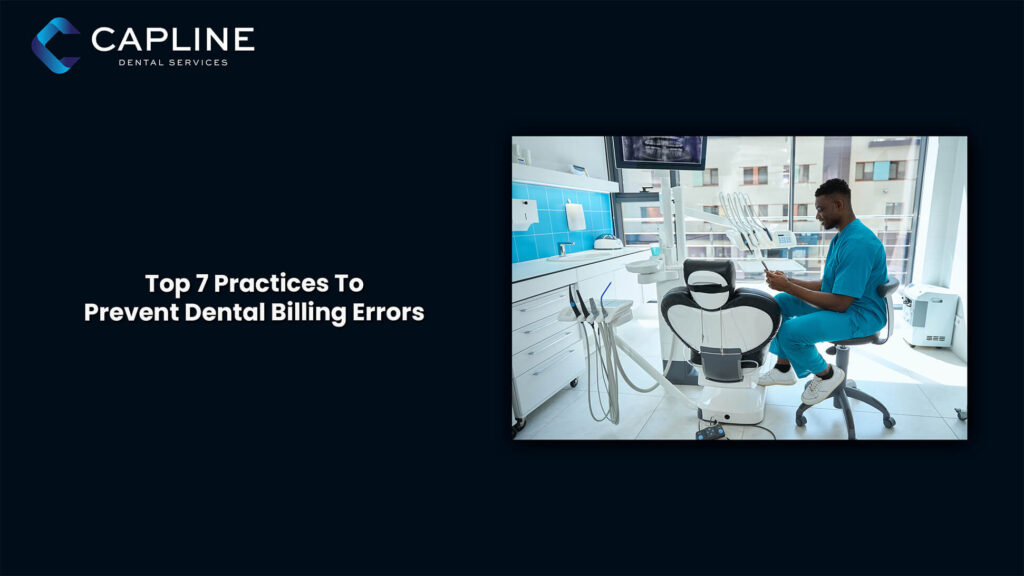
Revenue loss and unnecessary reimbursements stemming from simple coding errors when generating a bill or from missing a claim submission date. They are a waste of time, but also negatively impact cash flow, and hence, denial management needs to be looked at by the dental team. These errors also tend to irk and lose goodwill with patients. Multiple errors happening periodically can also make a practice financially unviable.
A few challenges that are faced by a dental practice when it comes to billing, and especially claim denial management.
To prevent dental claim denials, CDT requires the team involved to stay up to date on changes to existing codes, learn new codes, and be aware of deleted codes. This is because the codes for dental procedures are updated frequently.
Billers must cross-check and authenticate the patients' coverage details before the appointment to determine whether the payment methods for the services to be rendered are not covered by insurance.
Retention of workers is vital to ensuring that the knowledge and proper consideration of process details are closely monitored, thus aiming for the successful processing of all claims.
There might be increased denials and revenue loss as a result of attrition, absenteeism, and frequent staff changes that impact billing quality.
A few ways to avoid such errors that hamper business operations are as follows:
As innovation and medical equipment have evolved, so too have the tools used in dentistry for procedures and implants. As new equipment and methods emerge, so does the need for coding to assist them with new tools and techniques. In case of a coding shortcoming, an annual refresher is there to assist even the most seasoned practice supervisors.
Practices must examine and record the progression of codes often used and evaluate the ways of their impact. The coding refreshers address new methods and help focus on more effective ways to increase payback efficiency. There are changes in materials and even advancements, thus leading to better methods for submitting claims and payments.
Billing processes for a dental practice can be easily streamlined by outsourcing to a reputable dental billing specialist. They can help the practice by bringing overhead costs down as well as boosting cash flows. Dental billing eligibility verification, dental claims processing, etc., are just some of the services that could be outsourced to the firm.
To guarantee prompt payment, it is crucial to have the best dental billing professionals when submitting insurance claims. It is crucial to establish a streamlined procedure for reviewing and validating daily claim submissions so as to eliminate inaccurate information, maximize quality, and well monthly collections. Billing and coding specialists help monitor the claims' progress to determine the reasons for claim rejections and denials, and thus, as a result, they resolve all claim-related concerns and guarantee efficient dental billing and coding.
Poor follow-up and missed deadlines are not the only reasons claims are denied. Inaccurate patient information or coding errors are detrimental to your practice. Your practice may lose thousands of dollars in revenue if dental claims are filed after the deadline without a clear system or if the information provided is inaccurate.
Each insurance provider has a different date for submitting. While some permit six months for filing claims, others might provide a ninety-day window. However, waiting too long lowers your chances of getting compensated, no matter how valid the claim is.
Once treatment is completed, the dental team must file completed claims within a couple of days. This means a minimal possibility of a mistake or error. There is a greater chance of forgetting steps, reporting treatment incorrectly, or failing to submit at all if a claim is created after waiting for some time.
By grouping several operations under a single code, Insurance payers pay less than they would if the procedures were billed separately. Bundling is frequently practiced by insurance payers to lower reimbursement. A practice may miss out on income without even recognizing that the team fails to assess and understand when and how bundling applies.
When an insurer defines two or more different procedures as one "comprehensive" service and considers reimbursement on that reduced rate, it is known as bundling.
For example, the dental team undertakes two distinct X-rays, such as a bitewing and panoramic. It bills these services separately. The insurance company, however, considers both these X-rays as a full mouth series (FMX). It offers reimbursement to the practice as a bundled rate applicable as FMX.
Understanding what is permitted as per the guidelines and which of the procedures included need to be bundled. Review the recent CDT codes and changes, as previously grouped services could have been unbundled in certain recent revisions.
Accurate CDT coding is vital to further support a claim for separate billing. Additionally, include any available documentation with the claim submission to further support such claims.
Most insurance companies have made it necessary that the practice recovers the patient's financial dues completely, and ignoring such rules may result in fines. The practice must avoid charges of making false statements or a waiver of the pending amount payable by the patient.
Managing deductibles, copays, and co-insurance amounts
Not just an error, but insurance fraud occurs when procedures that were never performed are billed for. This involves submitting claims for unfinished, discontinued, or never-delivered services. It is a very serious abuse in dental care that can lead to unwanted fines, audits, or prosecution, depending on the extent of the violation. Steps to avoid billing for services not rendered are as below.
The issues that arise due to billing errors can be detrimental, and this can be manifested in the form of restricted cash flow, unhappy patients, and additional work for the staff. Following a few easy and proven measures can help the practice avoid unnecessary billing errors.